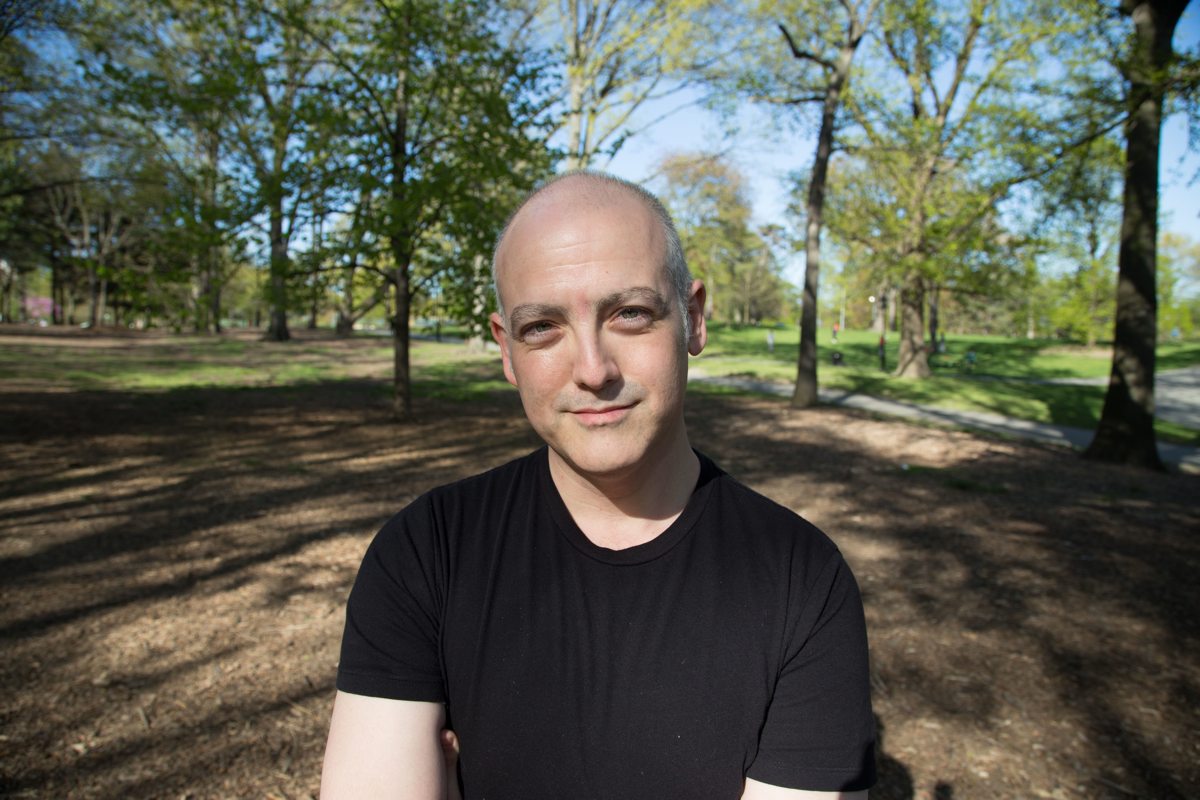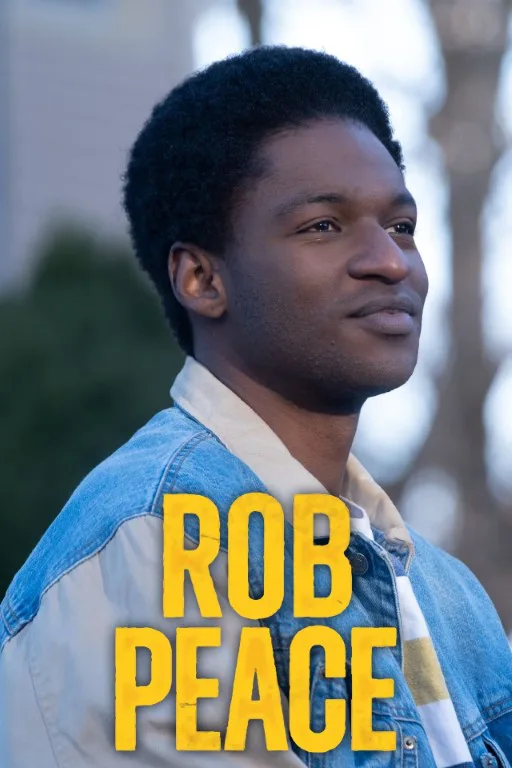"Rob Peace," based on a true story, is a kind of movie that doesn't get made too often anymore.
The title character, played by Jay Will with the laser-focused intelligence and charisma of young Denzel Washington, was a science-obsessed young man raised in East Orange, New Jersey, a suburb of Newark. Rob had a drug dealer father and a mom who worked three jobs to send him to a private school run by Benedictine Monks. He ended up going to Yale to study biochemistry and might've become a world-altering scientist had it not been for the drag of his tragic personal life: his father Skeet was sent to prison for killing two women with a handgun. The case had odd prosecutorial details that suggested police tampering (the killing firearm that was entered into evidence didn't match Skeet's gun, for one thing), and even though Rob was dogged by worries that his father might be guilty anyway, he worked tirelessly to free him, even diverting some of his science brain into growing and selling "designer weed" to cover legal fees through many years of court actions.
"Rob Peace" has been made in the spirit of Black New Wave films of the 1980s and '90, often modestly budgeted movies about poor or working-class people facing real problems. It would not have existed without actor Chiwetel Ejiofor. He directed the film and adapted the script from a nonfiction book by Jeff Hobbs, who knew the title character. He also plays Skeet, a big-hearted, raucous man who loves his son but is limited, even broken, in a lot of ways.
Did Skeet commit two murders? He says he didn't, and a lot of people in the neighborhood are convinced he didn't, and he had no criminal record of any kind prior to being arrested for the killings. Rob's beloved mother Jackie Peace (Mary J. Blige, who's as good an actress as she is a musical performer) won't go so far as to say that she has doubts, only that she kept a few of the more unsavory details of Skeet's life from their son so that he could enjoy the same privilege so many other sons have, of looking up to their fathers. The story of Rob and his imprisoned father is the backbone of the movie.
But it's not the only element that Ejiofor focuses on. There's a lot, and I mean a lot, going on in this adaptation, in good and bad ways. It's impressive to consider the screenplay and direction from the standpoint of craft. It's simultaneously an example of compression (trying to get in and out of a scene as quickly as possible, for the sake of economy and momentum) but also expansiveness (trying to make every moment do more than one thing: establish or developing characters, plant bits of foreshadowing, make comments on life beyond this one true story).
Among all the other things that it is, "Rob Peace" is a portrait of a type of extraordinary individual whose prodigious gifts are yoked into service by those who don't have such blessings. Rob's father is the number one example. Watch how he goes from being tearfully grateful for his son's help to seeming like he feels entitled to it, and making the lad feel guilty for not spending every waking moment living for his pop. But Rob is also a beacon of what's possible for neighbors, teachers, and high school and university classmates (he has the rare ability to draw people from a lot of different demographics together to party). There's a even a subplot about Rob and a couple of his friends realizing there's money to be made in buying and "flipping" houses, to make a little money off the gentrification that started transforming a urban neighborhoods after the turn of the millennium, including East Orange's and Newark's. Rob's got the vision, but he also has the skills. It soon becomes apparent that the skills helped give him the vision. You see this idea expressed even in little moments, like when Jackie and Rob have a budgeting talk and she reflexively has him do the math.
"Rob Peace" is an ambitious, probably overstuffed movie that tries to pack an eventful life and all of its wider implications into two hours; it could easily have run three, or been reimagined as a TV miniseries. Some elements feel truncated or skipped-over. But that's the nature of the project—another tragic inevitability, maybe. (Old movie biographies used to be able to get away with focusing on the highlights of a life: they'd give you 20 minutes on a character's childhood, then glimpses of three or four distinct parts of their existence, then wrap things up and roll the credits, and somehow nobody in the audience felt cheated.)
"Rob Peace" is stylistically out-of-step in another way: it's a populist work aimed at a wide audience. It's a shame that movies like this no longer get mainstream theatrical distribution (unless they star Will Smith—and even then it's a dice roll) because it seems to have been made with audience reactions in mind. Ejiofor's direction and Masahiro Hirakubo's editing leave space for laughs, tears, gasps, and side-talk. There are moments where Rob is knocked down by a challenge, overcomes adversity, or makes what we know is a big mistake even though he doesn't realize it the time, and you just know you'd be able to feel the collective connection to the material at a cellular level if you were in a crowded theater.
The best thing about this movie, though, is that it never holds your hand and tells you that if a certain character feels one way about something and you feel differently, you're somehow "watching it wrong." If anything, "Rob Peace" errs on the side of telling you that you're going to come out of this movie feeling as if you've seen a story that doesn't fit into one box, or even several boxes, because nobody's life does.




















